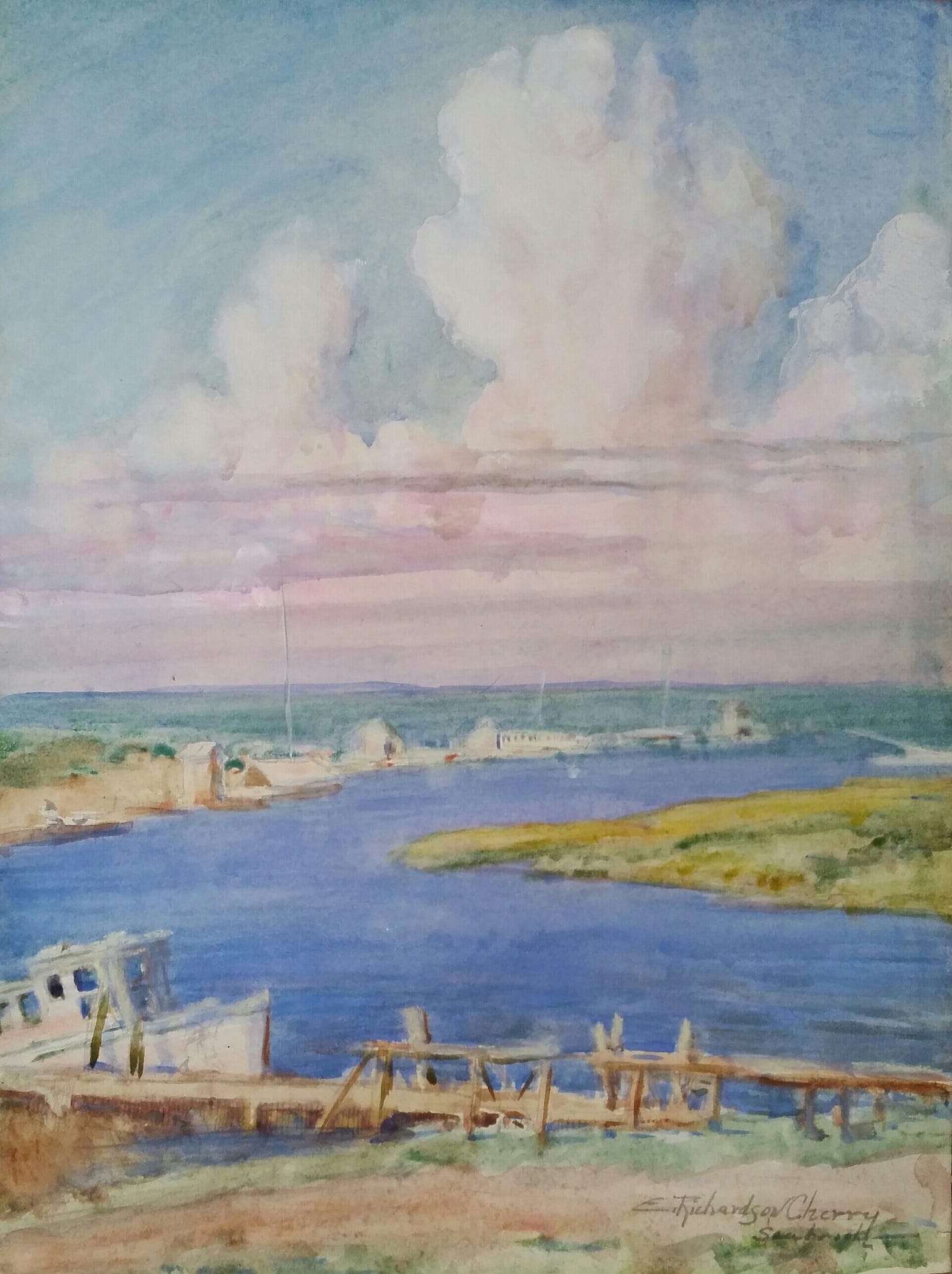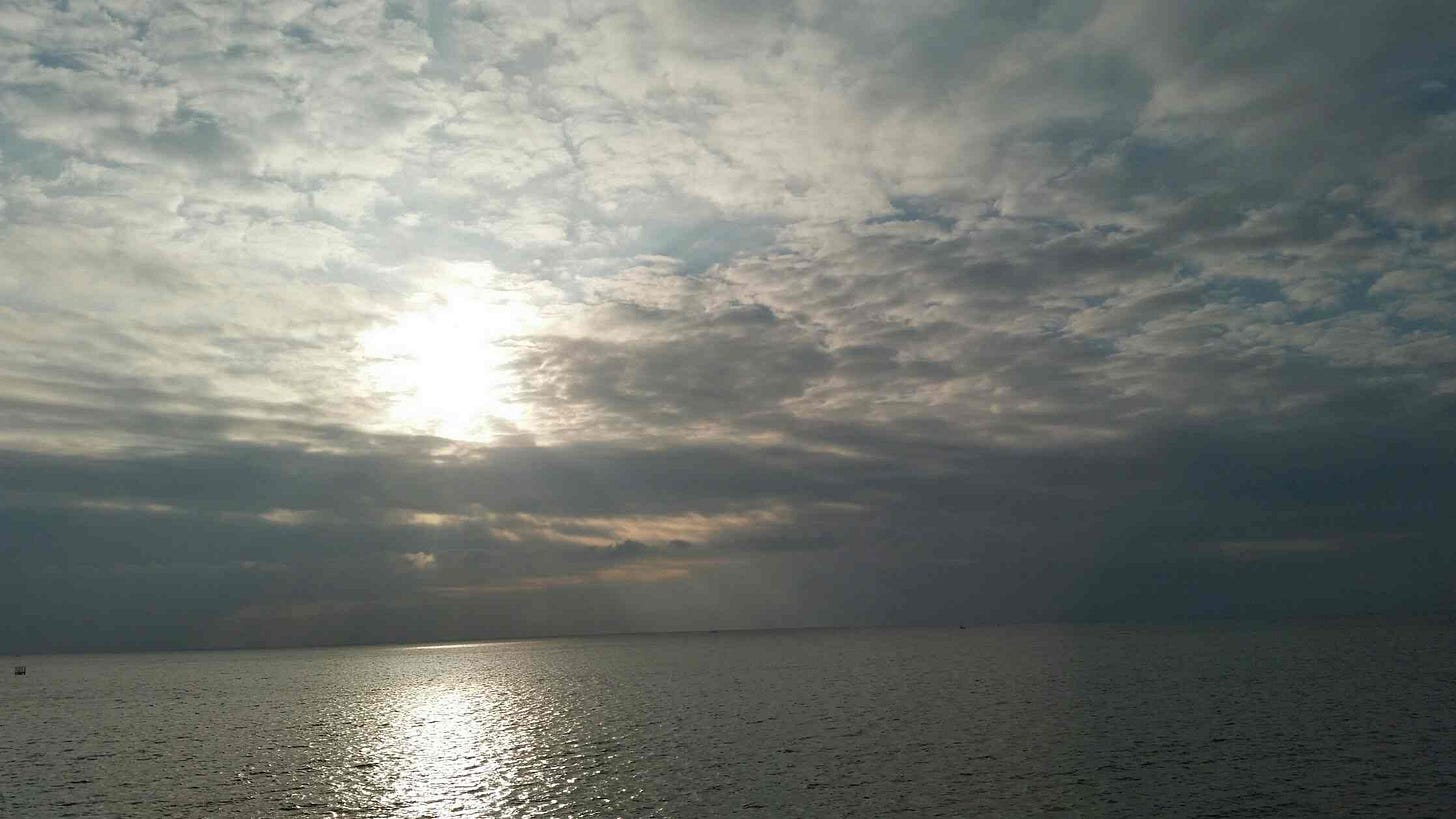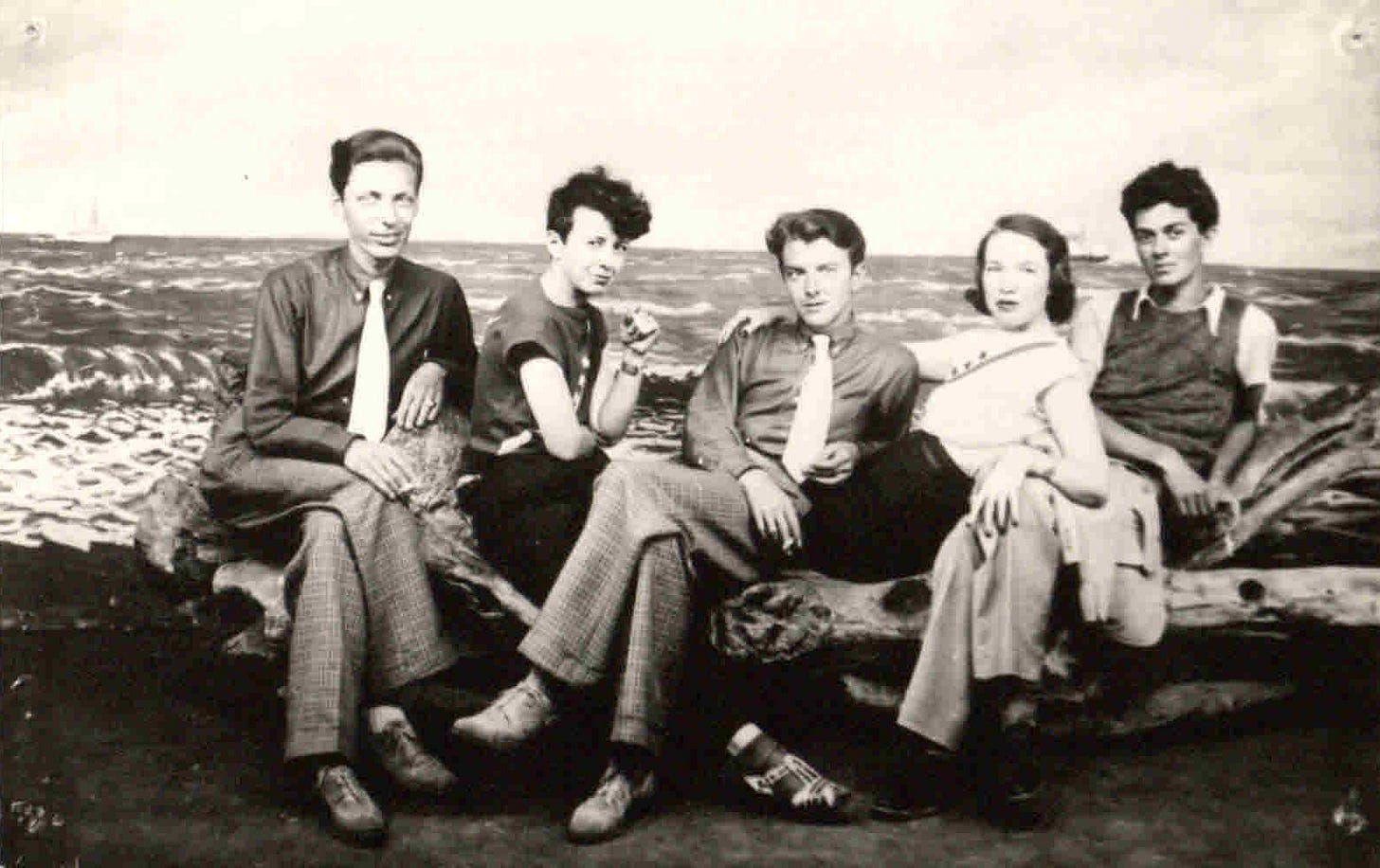Left Bank on the Bayou - I Glimpse a Future
A Queer Houston Story of the 1930s
(Note: This is the next part of a serial novella. To catch up on earlier parts, look at the section titled Left Bank on the Bayou.)
I began to have a feeling that I might be at the start of a new era of my life, the era in which I’d found the man with whom I would build a future, and that that future had begun to be built. I imagined that future opening out to a distant horizon extending all the way to the end of my days – our days, since in my imaginings we would be taking the journey to that future, that distant horizon, together.
Not that I saw a smooth plain with a straight well-paved road when I looked into the distance. No, knowing realist that I had become by now, I knew that there would likely be rough patches and steep climbs ahead, even for two mature men, old and wise (or at least older and wiser) enough to know that nothing is ever perfect, and that sometimes even the imperfect is “right” enough to make effort, and even compromise, worth the making. Fairytales of perfect love might do for children, and even for romantic youths to a point, but we were now both men, men of experience, and fairytales no longer had their power over our discerning eyes – and hearts!
Not all of this had been spoken between us, but between us much could go unspoken: we knew what we both had learned and understood about life, without words. He soon filled a place all his own in my house and my Houston life, as he already did in my heart. It seemed as though he had always been there (and, of course in my imaginings, as though he always would be). He took on an equal share of the tasks that keep life going, and gave an equal share of the joys that make the tasks worth doing.
And he brought his own uniqueness into my life in ways I could never have imagined. One afternoon he made “salsa” for me, a Mexican delight he’d learned during his time in Mexico City – a time he said he hoped someday to repeat. He crushed the last of the summer tomatoes with some of the hot peppers he’d planted in the garden almost as soon as he arrived in Houston; mixed them with garlic and onion and cilantro (how foreign to me!) and other things into a spicy potion that lit up my mouth as he himself lit up my life. A little thing, but a token of so much more.
On another afternoon, a radiant late October one, we absconded from life duties, and flew away in my car down to Seabrook on Trinity Bay, the little fishing village now becoming a day-trip destination for Houstonians weary of city bustle, and longing for a few hours of escape.
Of course it was afternoon when we left: all our little or big adventures started in the afternoon. Russell painted in his studio every morning with the devotion of a chanting monk. I knew without his having to say it a second time, that when his studio door was closed, the door was closed. And so I never tried to open it until he did. Even on those few days when he did not go to his studio for whatever reason – practical or spiritual or simply, and rarely, due to human frailty – I waited until he made clear the metaphorical door would be open before trying the handle. But after he opened it, he gave himself to me and our life together completely.
That afternoon was one of those warm October ones when the clouds billowed high into the sky like Matterhorns soaring toward heaven – more summer clouds than those of fall – awe inspiring and beautiful – pink and blue, and a pure white, like new cotton bolls just exploded open. Russell sketched the clouds, and then washed them in with watercolors, and I watched him, seeing the magnificent, gorgeous spectacle through his eyes instead of my own.
We walked the dilapidated boardwalk along the shore and felt the breeze on our faces, blowing in over the blue water of the bay, and ruffling our hair. Later, when we were hungry, we stopped at a shack on a pier for shrimp netted in the Gulf before dawn that very day, and battered and fried to succulent perfection by an old black woman who had been frying shrimp caught each day for decades. She presented them with crisp hush puppies and a Creole remoulade she made every morning as her fryer heated. The two wooden tables in front of her shack seemed almost floating in air above the water, and the boards that made the tabletops seemed saturated by the frying fat that mingled with the salt breeze that scudded up from the salt-water Gulf, air salty enough almost to season the shrimp without need for a shaker. How did we have room left at the end for the puckery lemon bars she offered to finish a meal perfect for its time and place, and which we’d remember long after we’d forgotten French delicacies?
After we’d eaten, we sat silent for a while looking out over the bay, as Russell finished his beer. Since I was driver, I didn’t drink. And since no other customers came along to need the tables, we had no pressure to leave. The old woman looked out at us from time to time to see if we might want something more. I smoked and Russell opened his pad and sketched.
After a while I realized he was sketching me, as I leaned back in my rocking chair one leg over the other, puffing my fag. I felt self-conscious when I realized it, and a hot blush came into my cheeks – as though I had things to hide, things to be ashamed of, that he would certainly see with his penetrating artist’s eye – and then put on paper for the world to see.
Of course I had things to hide; everyone does. Things that we each think are the most revealing, the most damning, the most awful that can be. Men like us, like me and Russell, and so many others of our circle – men like us come to think that we especially must hide what is the most awful thing of all, even as it is the most central to us, this love of other men. We come to think it the most awful, because from birth we are told it is – either explicitly told: “we must root out the moral rot of these human dregs”; or implicitly, by everything the people and society around us hold up as beautiful and good.
So, yes, I had things to hide. But surely not from Russell, nor he from me. I wanted with all my heart and mind for there to be no hiding between us. Nothing hidden this once, perhaps in a whole lifetime. That was the future I tried to believe I glimpsed as I looked over the bay toward the horizon, as Russell finished his sketch and closed his pad. If only I could believe I really saw it …
The afternoon had grown late; it was time to go; we had agreed to meet a group of others – Gene, Cardy, Zoe, Nione, Billy – who’d also fled the city, in their case for a day in Galveston. We’d meet up with them at our hangout on the Galveston Highway, where we often went because we knew we’d find an unfettering welcome. And a bit of space where we could breathe easier than in most places. Margo would be there too, and she would curtain off our booth with a couple of raincoats tied together, making our own private space, where we could pass around the half-pint of Four Roses whiskey she was bound to have brought. She always did, Four Roses or some other kind.
They were there already when we pushed through the door. It was already dark outside, so inside seemed bright, even though the lights inside were dim and the air smoky. It didn’t matter. The whisky had already begun to flow, and the spirits to soar. We heard their laughter from behind the raincoat curtain all the way to the door.
When we parted the raincoats and took our spots in the booth, Margo poured us drinks and Gene pushed toward us the photo they’d had taken at a booth on the Seawall – only the five of them; Margo had driven down from town for our little party after a day in City Hall convincing the powers to fund her theatre group; which they did; not even politicians could resist Margo.
For a while, at least, behind our raincoat curtain, we could act as though there was nothing to hide at all.





